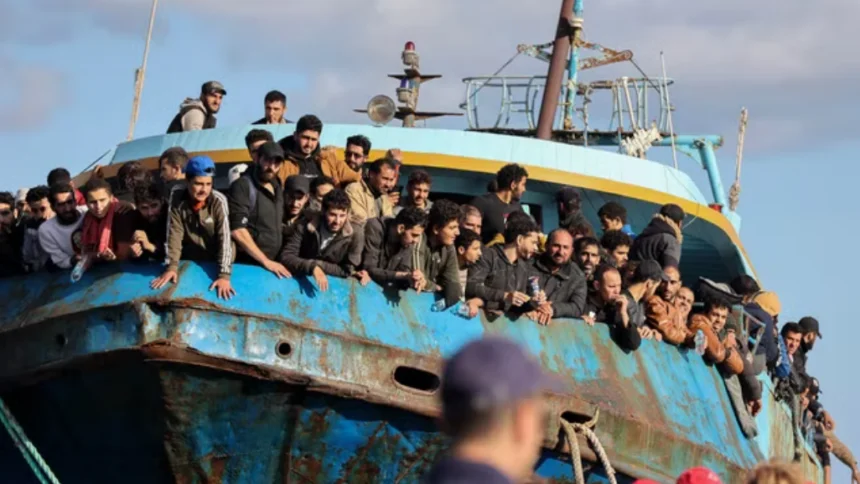On Thursday, the Greek coastguard said that roughly 500 asylum seekers were temporarily transferred to a ferry for processing after being saved in a dramatic operation this week off the island of Crete.
The migrants, which consisted of 128 boys and 9 girls, were on board a derelict fishing boat that sent a distress call late on Monday while sailing southwest of Crete.
Greek officials claim that as a result of increased patrols by the Greek coastguard and EU border agency Frontex in the Aegean Sea, migrant smugglers are increasingly taking a longer and more hazardous route south of Crete.
According to a coast guard spokesman, the 483 people in the group are Syrians, Egyptians, Pakistanis, Palestinians, and Sudanese. She said, “The operation is proceeding, although it is slow because of a great number of people. “We also need to have their testimonies,”
On Monday, many nearby vessels responded and a Greek navy frigate was sent, but near-gale winds hindered the marine rescue of the migrants. Tuesday’s safe tow of the 25-meter (82-foot) fishing boat to the small coastal town of Palaiochora in Crete took half a day.
The coastguard stated in a statement on Thursday that the asylum seekers had been transported to a Greek ferry on Wednesday evening. The duration of their stay there could not be readily determined by the agency.
According to Athens, it would immediately ask other EU countries to distribute a large group.
Greek Migration Minister Notis Mitarachi wrote to the European Commission in a letter that was made public on Tuesday: “We ask the (European) commission to immediately undertake and coordinate a relocation initiative in response to this (search and rescue) operation, ensuring the responsibility, in saving lives at sea, is fairly shared among member states.”
People who are fleeing from Africa and the Middle East to the European Union in search of safety and better lives usually travel through Greece, Italy, and Spain.
Nearly 2,000 migrants have been reported dead or missing in the Mediterranean Sea this year, according to the International Organization for Migration.












